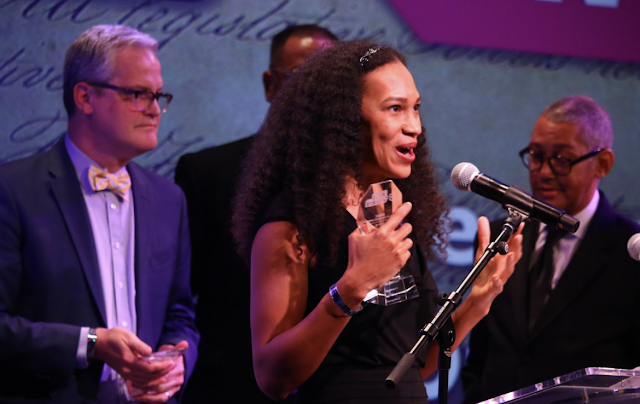Some Thoughts on Nella Larsen's "Passing"
Passing by Nella Larsen, recently released as a film by celebrated actress/director Rebecca Hall, has made me think deeply about my racial identity. Though I was born in a segregated Colored hospital, raised in a black neighborhood, attended segregated public schools, sat in a black church Sunday mornings, the fact remains that I never felt loved by anyone black. I suppose, when they looked at me, my parents were reminded of the pain of their own childhoods. I felt ostracized by the kids at school, and was bullied mercilessly because of my light skin and "correct" speech. My mother would straighten my hair to make me look whiter, but I never thought that she intended to enable me to "pass." My father was visibly blacker than she was, and everyone knew that he was my father. But I never got the impression that she intended for me to marry a white man. In fact, I never got the impression that she intended for me to marry a man at all. She wanted to remain the center of my focus, but that's material for another article.
When the time came for me to go out there and search for love, since I never felt loved by blacks, it made sense for me to search for love among whites. In Passing, the main character Irene speaks of the love of her family and happy memories of time spent with her relatives. So of course she married a black man. The other main character, Clare, did not experience such familial love. Her mother was the bastard child of a white man and a black woman. She was an embarrassment in her white family. But she was white enough to pass and married the first white man who expressed interest. This man turned out to be the kind of person who announced, "There'll be no niggers in this family!" yet he has no idea that his wife - the mother of his child - is legally black. "Whites are so stupid about these things," she says during her first adult conversation with Irene. They had been childhood friends and hadn't seen each other for many years. The fear of being discovered is an underlying theme throughout the book.
As a child, I did have an encounter with a little white girl who befriended me without knowing that I was black. When she was told that I was "a nigger," she stopped speaking to me. At the time, it never occurred to me that she had thought I was white. I never pretended to be something or someone I wasn't. It was her mistake to assume that I was white in the first place. But being white was never something I was trying to do. My college-professor mother demanded that I speak the King's English correctly, and play classical piano. All I was doing was obeying her.
 |
| Rebecca Hall |
 |
| Maria Ewing |
I was especially delighted to learn that Nella Larsen attended Fisk University, where my parents were faculty members, in 1907. Her husband was even the nephew of one of the original Fisk Jubilee Singers!
Nina Kennedy is a concert pianist, orchestral conductor, and award-winning filmmaker. She holds a master’s degree from the Juilliard School. Her memoir, Practicing for Love, is a 2021 Lambda Literary Award Finalist. The sequel, Practice What You Preach, is available at infemnity.com/shop.





Comments
Post a Comment